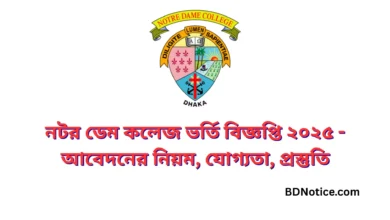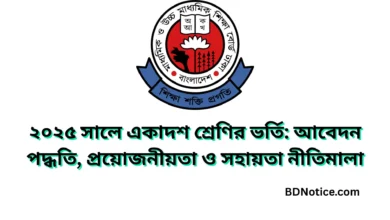Eid ul Adha 2025 in Bangladesh – A Celebration of Faith, Family & Generosity
Eid ul Adha 2025 in Bangladesh
Eid ul Adha 2025 in Bangladesh isn’t just a date on the calendar—it’s a feeling that lives in every home, every prayer mat, and every shared meal. It’s that sacred time of year when streets are filled with joy, mosques echo with heartfelt prayers, and communities come together to honor a timeless story of faith and sacrifice.
Falling on Saturday, June 7, 2025, this special occasion—also known as Bakrid, Bakra Eid, or Qurbani Eid—marks the memory of Prophet Ibrahim (Abraham) and his deep devotion to Allah. But for millions of Bangladeshis, it’s much more than a religious ritual. It’s about giving. It’s about togetherness. And most importantly, it’s about love—shared freely and joyfully with those around us.
In this article, we’ll explore what makes Eid ul Adha 2025 in Bangladesh so unique, meaningful, and beautiful. Let’s dive in.
Eid ul Adha 2025 Countdown
| Date | Day | Time Left |
| June 7, 2025 | Saturday | 19 days to go! |
The countdown to Eid ul Adha 2025 in Bangladesh has begun! With only a few weeks remaining, homes are already buzzing with excitement. The planning starts early—buying animals for Qurbani, preparing clothes, checking off shopping lists, and yes, perfecting those mouthwatering family recipes.
What Makes Eid ul Adha So Special?
To understand Eid ul Adha, you need to feel it.
This isn’t just about religious rituals. It’s about emotions, memories, and moments that bind generations together. Eid ul Adha reminds us of the powerful story of Prophet Ibrahim’s unwavering obedience to Allah. When commanded to sacrifice his beloved son, he didn’t hesitate. But just as he was about to do so, Allah replaced the boy with a ram. This divine moment became the foundation of Qurbani, the ritual sacrifice carried out by Muslims every year.
In Bangladesh, this story is told not only through prayer but through action. Streets come alive with the sounds of animals being walked through markets, children marveling at their size and beauty, and elders explaining the meaning of this blessed act. It’s not just a religious tale—it’s a lesson in faith, humility, and devotion.
Every family brings their own traditions into the celebration. Some prepare elaborate meals with heirloom recipes passed down for generations. Others focus on charity—quietly making sure their neighbors and the less fortunate are not forgotten. The beauty of Eid ul Adha 2025 in Bangladesh lies in this diversity of expression.
The Morning of Eid: A Sacred Beginning
There’s something magical about the morning of Eid ul Adha in Bangladesh. As the first light peeks through the sky, thousands make their way to mosques and Eidgahs dressed in fresh, new clothes—often white, symbolizing purity. The roads are quieter than usual. There’s a peaceful buzz in the air.
Men stand shoulder to shoulder in prayer, whispering the Takbir, grateful for the day ahead. After the Eid prayer, hugs are exchanged, smiles are shared, and greetings of “Eid Mubarak” fill the air.
This moment, though deeply personal, is also communal. It’s about feeling connected—not just to Allah, but to every other person standing beside you. From the sprawling mosques of Dhaka to the open fields in villages, this scene repeats across the country, creating a spiritual harmony that’s hard to put into words.
The Qurbani Ritual: More Than a Sacrifice
One of the most sacred traditions of Eid ul Adha 2025 in Bangladesh is the Qurbani, or animal sacrifice. Families who can afford it offer a goat, cow, or sheep as a symbolic act of obedience to Allah—just as Prophet Ibrahim did.
But in truth, the act is much more than symbolic. It’s about letting go of attachment, giving from your wealth, and ensuring others have food on their plates. In many neighborhoods, families share their Qurbani meat in equal parts—one-third for themselves, one-third for relatives, and one-third for those in need.
Here’s a simple breakdown of how Qurbani is usually distributed:
| Share | Recipient | Purpose |
| 1/3 | Own family | Nourishment and celebration |
| 1/3 | Relatives & friends | Strengthening bonds |
| 1/3 | The poor & needy | Charity and compassion |
For many in rural or underserved areas, this may be the only time of year they have meat in their meals. That’s why Qurbani is a gift of dignity—not just of food.
🍽️ Food, Family, and Festive Flavors
Food during Eid ul Adha in Bangladesh is nothing short of legendary. Once the sacrifice is done and the meat is cleaned and prepared, kitchens turn into culinary theatres of joy.
From beef rezala and kacchi biryani to shutki bhuna and nehari, every dish is a celebration. Sweet treats like shemai, firni, and payesh are served in every home, offered to guests with cups of milk tea and warm smiles.
But it’s not just about what’s on the plate. It’s about who you share it with.
Cousins gather under one roof. Neighbors drop by unannounced. Children roam from house to house collecting Eidi (small cash gifts). The smell of fried onions and cardamom fills the air. And through it all, the spirit of togetherness stays strong.
In every home, love is the secret ingredient.
The Po Giwer ofving: True Spirit of Eid
If there’s one thing Eid ul Adha 2025 in Bangladesh teaches us, it’s this: real happiness grows when it’s shared.
Giving isn’t just about meat or money. It’s about making others feel seen, included, and loved.
You’ll often see families hand-delivering Qurbani meat to those who can’t afford it. Volunteers packaging meals for the homeless. Little children carrying bags of rice or handing sweets to the local rickshaw puller. These small, simple gestures often carry the deepest meaning.
Bangladeshis are known for their warmth. And on Eid, that warmth burns even brighter.
Eid al-Adha vs Eid al-Fitr: Two Celebrations, One Spirit
Though both Eid ul Adha and Eid ul Fitr are moments of deep spiritual joy for Muslims, they come with different stories, meanings, and emotions.
Eid ul Fitr is celebrated at the end of Ramadan—a month of fasting, reflection, and prayer. It’s about renewal, gratitude, and thanking Allah for the strength to practice self-control. The focus is more on Zakat al-Fitr, a mandatory charity that ensures everyone, especially the poor, can join the celebration with dignity.
Eid ul Adha, on the other hand, is rooted in the story of sacrifice. It comes during the Islamic month of Dhul Hijjah, coinciding with the Hajj pilgrimage, and honors the willingness of Prophet Ibrahim to give up what he loved most. Instead of fasting, this Eid is marked by Qurbani, prayer, and the message of giving from what you treasure.
While both Eids involve special prayers, wearing new clothes, and joyous family gatherings, their inner essence is different. Eid ul Fitr is like a celebration after a personal journey, while Eid ul Adha 2025 in Bangladesh is more of a communal expression of obedience, compassion, and sacrifice.
Think of one as the celebration of endurance—and the other as the celebration of surrender and selflessness.
Real Stories of Kindness on Eid: Moments That Stay With You
If you walk through the narrow lanes of Old Dhaka or the rural fields of Sylhet, you’ll hear stories—real ones—that reveal the true heart of Eid.
A young boy giving away his Eidi to buy food for a poor family. A widow receiving Qurbani meat from five different homes. Volunteers spending their entire day visiting shelters, orphanages, and old-age homes with gifts and meals. These are not rare events. They are woven into the culture of how Bangladesh celebrates Eid.
In many neighborhoods, community groups form small teams to cook and distribute food in areas hit by poverty or floods. Sometimes, people use their Zakat and Sadaqah to help someone get medicine, pay rent, or buy school supplies for their children.
One story stands out every year: a rickshaw puller from Chittagong who refuses Eidi from his customers but accepts a box of sweets with tears in his eyes. “I may not have much,” he says, “but today I feel like I have everything.”
That’s Eid. That’s Bangladesh.
Village Life During Eid: A Celebration Rooted in Soil
Eid ul Adha 2025 in Bangladesh isn’t just a city affair. In fact, the heartbeat of the celebration lies in the quiet charm of villages across the country.
Days before Eid, families from Dhaka and other urban centers begin returning to their ancestral homes. The roads buzz with traffic, and train stations are packed with travelers carrying gifts, clothes, and excitement.
In the villages, the celebration is slower, more grounded. Cattle haats (markets) are set up in open fields, where buyers negotiate with sellers in a dance of words and trust. Children are often seen proudly walking their goats or cows through narrow paths, giving them names and feeding them by hand.
On Eid morning, entire communities pray together in vast fields, surrounded by greenery. After Qurbani, the meat is cooked over wood-fired stoves. Neighbors visit one another without appointments, and food is shared with open hands and open hearts.
Here, Eid is not about formality. It’s about pure connection—to each other, to faith, and to nature.
More Than Meat: What We Really Share on Eid
While meat from the sacrifice is a central part of Eid ul Adha 2025 in Bangladesh, the festival isn’t about food alone. It’s about sharing whatever we can—time, kindness, a listening ear, or a helping hand.
This spirit is especially alive in places where people have little. A smile, a warm plate of rice and curry, a prayer whispered for someone else’s peace—these become the true gifts of Eid.
You may not have a lot to give, but giving something from your heart is what matters. Whether it’s a new dress for a child who’s never worn one, or simply spending time with an elderly neighbor who lives alone, the smallest gesture can light up someone’s entire day.
Let’s remember: the real Qurbani isn’t just in the sacrifice of an animal. It’s in the willingness to part with comfort, time, and wealth—to make room for someone else’s happiness.
A Time to Reflect: What Eid Teaches Us All
When all is said and done—when the last guest has left, the last plate has been washed, and the prayer mats have been folded—Eid ul Adha 2025 in Bangladesh leaves us with something more lasting than memories.
It teaches us faith is not passive. It’s alive in our choices.
It teaches us that love is not in what we say, but in what we do.
It reminds us that religion, when practiced with compassion, becomes a source of peace for others too.
So, as we celebrate this holy occasion, let’s look beyond the rituals. Let’s ask ourselves:
- Who can I include in my joy today?
- Who is quietly struggling, hoping someone will notice?
- What comfort can I give up, so someone else can smile?
These questions don’t just make Eid more meaningful.
They make life more meaningful.
Final Thoughts: Let Eid Be a Light That Lasts
Eid ul Adha 2025 in Bangladesh is not just about one day. It’s about building a life of giving, of sacrifice, and of shared joy.
This year, as goats and cows fill the markets, as prayers echo through the land, and as families sit down for festive meals, let’s remember what this festival truly stands for: obedience, gratitude, and the courage to give.
Let’s make our Eid celebrations more inclusive, more generous, and more heartfelt.
Because in the end, it’s not the feast or the fashion that defines us.
It’s the kindness we carry into the world.
Read More
Memorial Day Sales Deals 2025 – The Best Discounts You Can Grab Right Now
Is Costco Open on Memorial Day 2025? Understanding Costco’s Memorial Day Closure
Memorial Day 2025: Honoring the Fallen, Embracing the Legacy
পল্লী বিদ্যুৎ নিয়োগ ২০২৫ সার্কুলার মিটার রিডার ও বিলিং সহকারী
ঈদ মোবারক স্ট্যাটাস বাংলা 2025 | Eid Mubarak Status Bangla
Qurbani Eid 2025 | কুরবানি ঈদ ২০২৫
ঈদ উল আযহার শুভেচ্ছা বার্তা ২০২৫ | ঈদ উল আযহা 2025
শিক্ষা ক্যাডারে বিশেষ বিসিএস ২০২৫
কুরবানি কাদের উপর ফরজ | কুরবানী ওয়াজিব হওয়ার শর্ত কয়টি
ঈদুল আযহারের সুন্নত আমল কী কী? ঈদের দিনের আমল
জন্ম নিবন্ধন সংশোধন আবেদন: অনলাইন ফরম, ফি, প্রিন্ট, যাচাই ও বাতিলের নিয়ম
গার্মেন্টস ঈদের ছুটি ২০২৫ | ঈদের ছুটির নোটিশ ২০২৫








